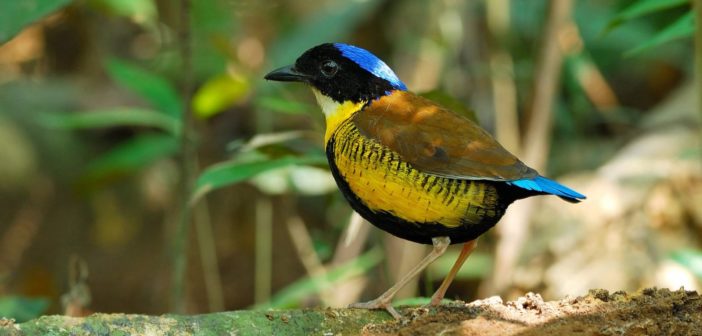Populations of the endangered Gurney’s pitta (Hydrornis gurneyi) have declined by a staggering 70% in just 13 years. This rapid population plummet is a result of habitat loss. Following a relatively recent extinction from Thailand, the species now occupies a small range of flat, low-lying forests in Myanmar. Unfortunately, these same forests are being cleared to make way for oil palm and betel nut plantations.
This isn’t the first time this striking species has been in danger of extinction. Widespread in Thailand before 1915, Gurney’s pitta was feared extinct after there were no confirmed sightings between 1952 and 1985. Rediscovery came with excitement in 1986, and populations were then discovered in five separate locations. However, by 1997 the species had again dwindled, occurring in only one of its previous five Thai habitats. By this time, the global population was estimated at a mere nine pairs and the pitta was believed to be one of the rarest species on earth.
Luckily, a search for the species in Myanmar in 2003 found the bird at several sites and estimated the population at between 5,000 and 8,500 pairs. Despite this encouraging discovery, since then their decline has been precipitous. Whilst they are currently listed as endangered, civil unrest within the final stronghold of their range could increase rates of habitat loss and push the species to critically endangered. Without slowing this decline through habitat protection, Gurney’s pitta may disappear from Myanmar just as they have from Thailand, except this time there will be no second chance.
Want to help save birds like this? Check out Birdlife’s Preventing Extinctions Program here.
Featured image: A rare sighting of the Gurney’s Pitta. © Boonchay Promjiam





